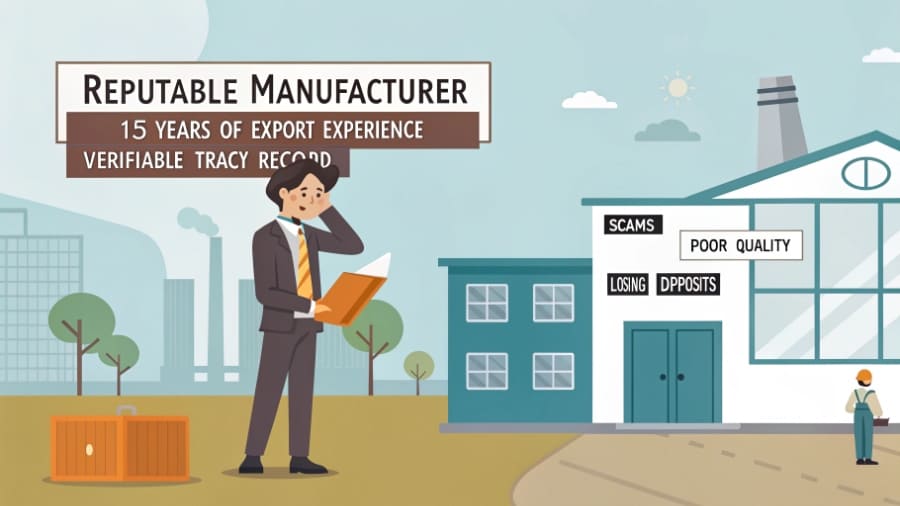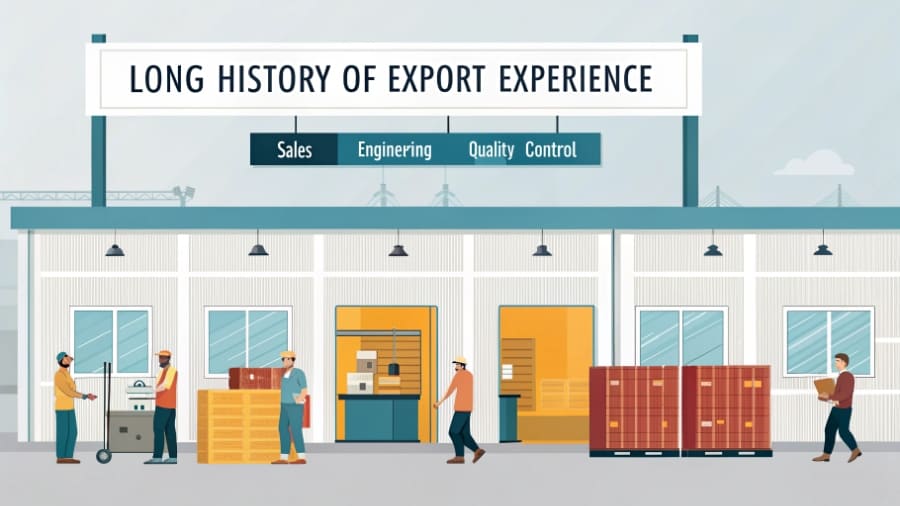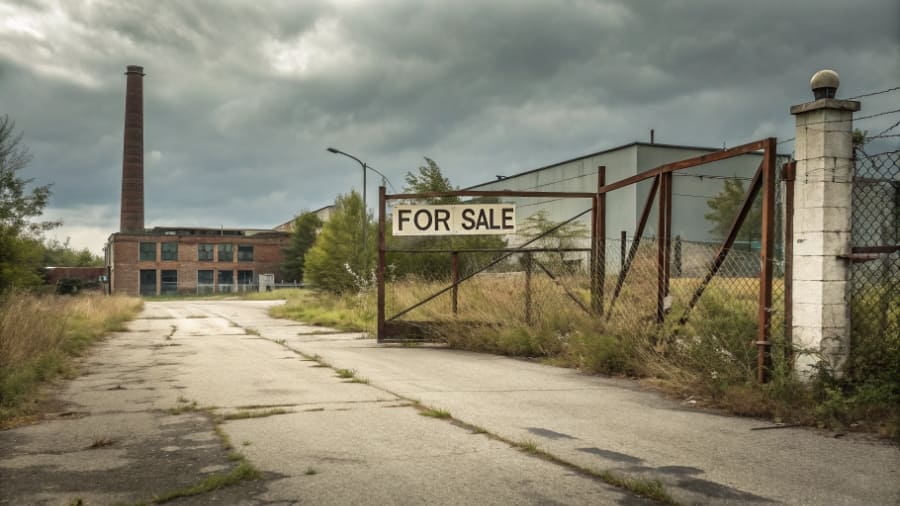How to Find a Reputable Manufacturer in China?
You need a Chinese manufacturer, but the horror stories are unnerving. You worry about scams, poor quality, and losing your deposit. Finding a trustworthy partner1 feels like a gamble you can't afford.
To find a reputable manufacturer, prioritize factories with over 15 years of export experience2, a formal business structure, and a verifiable track record. Avoid small, owner-dependent workshops where a single person's poor decisions can jeopardize your entire project. A professional operation is your best insurance.

Finding the right partner in China is the single most important step in your import journey. I've seen it all in my years of sourcing products. I've celebrated successful partnerships that have lasted over a decade, and I've also seen buyers get burned by fly-by-night operations. The difference always comes down to the quality and reliability of the manufacturer. It's not about finding the cheapest price; it's about finding the best value and the lowest risk. I've developed a checklist of what to look for, and what to run away from. Let's break it down.
What Are the First Signs of a Truly Professional Factory?
You've found a potential supplier online, but their website could be all for show. How do you separate the real professionals from the amateur workshops? You need to know the initial signs.
A professional factory proudly displays its long history of export experience. They have a clear organizational structure with dedicated departments for sales, engineering, and quality control. They aren't just selling a product; they are offering a complete, professional service3 from start to finish.

When I first start vetting a new factory, I look for experience above all else. A manufacturer who has been exporting for 18+ years, like SpringFaucet, has survived economic cycles and intense competition for a reason. They understand the entire process. They know the right questions to ask about your market's specific needs, whether it's for packaging, compliance, or logistics. A new factory might promise you the world, but an experienced one has already delivered it dozens of times. They have systems in place. This structure is your first clue that you are dealing with a serious, reputable business.
Professionalism vs. Risk: Key Differences
It's crucial to distinguish between a well-run company and a high-risk workshop4. A professional structure minimizes your risk and ensures consistency.
Here’s a quick comparison of what I look for:
| Factor | Reputable Manufacturer (Low Risk) | High-Risk Workshop |
|---|---|---|
| Experience | 15+ years of export history. Deep knowledge of international logistics and standards. | Limited or no export history. Unfamiliar with proper documentation and export procedures. |
| Structure | Formal organization with separate teams for sales, engineering, and quality control5. | A "one-man show" or family-run operation where the owner handles everything. |
| Accountability | Clear lines of responsibility. Decisions are made by a management team. | The owner has total control with no checks or balances. The business is vulnerable to their personal issues. |
| Communication | Professional sales team that speaks your language and understands your technical needs. | Communication is often slow, unclear, or handled by someone without technical knowledge. |
A factory like SpringFaucet, with its dedicated teams and decades of experience, fits firmly in the "Reputable Manufacturer" column. This structure isn't just for show; it's a fundamental part of their ability to deliver consistently and reliably.
How Do You Avoid the Catastrophic Factory Failures?
You're about to wire a thirty-thousand-dollar deposit. A feeling of dread washes over you. What if they just disappear? This isn't just paranoia; it happens, and you need to know the red flags.
To avoid disaster, investigate the factory’s ownership structure. Be extremely cautious of small, "husband-and-wife" factories where the owner has absolute power. Their personal life and character are directly tied to the security of your investment, and one bad habit can sink the entire business.

This isn't a theoretical risk. I learned this lesson through the experience of a colleague. He found what seemed like a perfect valve supplier in Yuhuan, a coastal city in Zhejiang known for manufacturing. It was a family-run factory, managed by a husband and wife. The prices were great, and the samples were good. My colleague placed an order and sent a deposit of over $30,000 to get production started for his client in the Middle East. Months went by. The delivery date passed, and communication stopped. After some investigation, the truth came out. The factory owner had developed a gambling addiction. He had taken the deposit money and lost it all. He quickly filed for bankruptcy, shut down the factory, and disappeared. The money was gone forever.
This story sends a chill down my spine every time I think about it. It taught me a vital lesson: the internal structure of a factory is a form of insurance. In a professionally managed company like SpringFaucet, there are financial controls and a management team. No single person can just take a client's deposit and walk away. The company's survival isn't dependent on one person's personal life. When you choose a manufacturer, you are not just buying a product; you are trusting them with your money and your brand's reputation. Make sure that trust is placed in a stable, professional organization, not on the personal whims of a single owner.
What Makes a Manufacturer a True Partner?
So, you've avoided the bad apples. But how do you find a manufacturer that goes beyond just filling orders? You need a partner who will help you succeed and grow.
A true partner acts as an extension of your team. They offer solutions, not just products. They have verifiable quality systems, international certifications, and communicate proactively to prevent problems. This is the foundation of a long-term, profitable relationship.

Finding a factory that won't scam you is the baseline. Finding one that actively contributes to your success is the real goal. A true partner invests in their own capabilities to better serve you. For example, a reputable faucet manufacturer should have certifications like CE, WRAS, or ACS if they claim to serve the European market. They should be able to show you their ISO 9001 certificate, which governs their quality management system. These aren't just pieces of paper; they are proof of a commitment to quality and a culture of professionalism.
I value a partner who is transparent. I want to know about their raw material testing, their production line inspections6, and their final product testing procedures. At SpringFaucet, for example, they have dedicated quality control staff on each of their four production lines. They perform 100% factory testing and follow international sampling standards like ISO 2859. This transparency gives me confidence. It shows that they are proud of their process and have nothing to hide. This collaborative approach, built on trust and verified quality, transforms a simple supplier relationship into a powerful strategic partnership that you can build your business on.
Conclusion
Finding a reputable manufacturer in China means looking for deep export experience, a professional structure, and verifiable quality. This approach protects you from risk and builds a foundation for long-term success.
Identifying trustworthy partners is essential for building reliable and successful business relationships. ↩
Export experience indicates reliability and knowledge of international standards, crucial for successful partnerships. ↩
A professional service goes beyond product sales, offering comprehensive support and solutions for your needs. ↩
Identifying high-risk workshops can help you avoid potential scams and protect your investment. ↩
Effective quality control processes are vital for ensuring product reliability and customer satisfaction. ↩
Regular inspections help maintain quality standards and prevent defects in the manufacturing process. ↩
